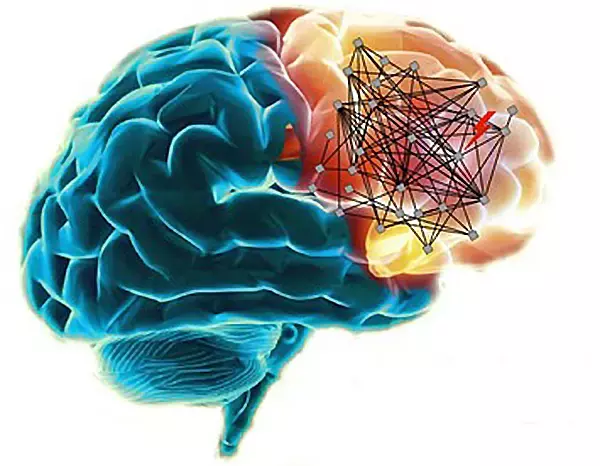- Home
- Medical news & Guidelines
- Anesthesiology
- Cardiology and CTVS
- Critical Care
- Dentistry
- Dermatology
- Diabetes and Endocrinology
- ENT
- Gastroenterology
- Medicine
- Nephrology
- Neurology
- Obstretics-Gynaecology
- Oncology
- Ophthalmology
- Orthopaedics
- Pediatrics-Neonatology
- Psychiatry
- Pulmonology
- Radiology
- Surgery
- Urology
- Laboratory Medicine
- Diet
- Nursing
- Paramedical
- Physiotherapy
- Health news
- Fact Check
- Bone Health Fact Check
- Brain Health Fact Check
- Cancer Related Fact Check
- Child Care Fact Check
- Dental and oral health fact check
- Diabetes and metabolic health fact check
- Diet and Nutrition Fact Check
- Eye and ENT Care Fact Check
- Fitness fact check
- Gut health fact check
- Heart health fact check
- Kidney health fact check
- Medical education fact check
- Men's health fact check
- Respiratory fact check
- Skin and hair care fact check
- Vaccine and Immunization fact check
- Women's health fact check
- AYUSH
- State News
- Andaman and Nicobar Islands
- Andhra Pradesh
- Arunachal Pradesh
- Assam
- Bihar
- Chandigarh
- Chattisgarh
- Dadra and Nagar Haveli
- Daman and Diu
- Delhi
- Goa
- Gujarat
- Haryana
- Himachal Pradesh
- Jammu & Kashmir
- Jharkhand
- Karnataka
- Kerala
- Ladakh
- Lakshadweep
- Madhya Pradesh
- Maharashtra
- Manipur
- Meghalaya
- Mizoram
- Nagaland
- Odisha
- Puducherry
- Punjab
- Rajasthan
- Sikkim
- Tamil Nadu
- Telangana
- Tripura
- Uttar Pradesh
- Uttrakhand
- West Bengal
- Medical Education
- Industry
Transcranial direct current stimulation may be beneficial for refractory auditory hallucinations in schizophrenia.

Despite adequate pharmacological therapy, up to 30% of schizophrenia patients suffer from treatment-refractory auditory hallucinations (TRAH). Studies defining the role of transcranial direct current stimulation (tDCS) in the management of auditory hallucinations have shown mixed results.
To address the controversial efficacy of this treatment strategy, recently a meta-analysis was published in Asian Journal of Psychiatry by Jiang et al. The authors have shown that adjunctive tDCS is not more efficacious than sham tDCS in improving auditory hallucinations symptoms. But subgroup analysis suggested that twice-daily stimulation or ≥ 10 stimulation sessions may be beneficial in this regard.
Auditory hallucinations are a hallmark symptom of schizophrenia. These symptoms are often distressing, especially when verbal content is threatening, derogatory, or abusive in nature. Persistent auditory hallucinations have been associated with emotional distress, and may increase risk of suicide and acts of violence. Despite adequate pharmacological therapy, up to 30% of schizophrenia patients suffer from treatment-refractory auditory hallucinations (TRAH).
Eight double-blind RCTs covering 329 schizophrenia patients (168 in active tDCS group, 161 in sham tDCS group) were included to systematically examine the efficacy and tolerability of adjunctive tDCS for auditory hallucinations symptoms as measured by the AHRS in patients with schizophrenia experiencing TRAH.
Although no advantage of active tDCS on auditory hallucinations was found compared to sham, subgroup analyses revealed that active tDCS with twice-daily stimulation and active tDCS with ≥ 10 stimulation sessions, showed a significantly better therapeutic effect than sham in improving auditory hallucinations symptoms.
Apart from loudness and number of voices, no significant differences were found regarding the improvement of auditory hallucination symptoms as measured by the AHRS (i.e., frequency, length, reality, attentional salience, and level of distress). No significant differences were found with regard to total psychopathology as measured by PANSS.
In conclusion, this meta-analysis indicates that the effects of tDCS for auditory hallucinations symptoms were influenced by the tDCS parameters. Twice-daily stimulation or ≥ 10 stimulation sessions may be needed to improve auditory hallucinations symptoms in schizophrenia patients with TRAH.
Source: Asian Journal of Psychiatry: https://doi.org/10.1016/j.ajp.2022.103100
M.B.B.S, M.D. Psychiatry
M.B.B.S, M.D. Psychiatry (Teerthanker Mahavir University, U.P.) Currently working as Senior Resident in Department of Psychiatry, Institute of Human Behaviour and Allied Sciences (IHBAS) Dilshad Garden, New Delhi. Actively involved in various research activities of the department.
Dr Kamal Kant Kohli-MBBS, DTCD- a chest specialist with more than 30 years of practice and a flair for writing clinical articles, Dr Kamal Kant Kohli joined Medical Dialogues as a Chief Editor of Medical News. Besides writing articles, as an editor, he proofreads and verifies all the medical content published on Medical Dialogues including those coming from journals, studies,medical conferences,guidelines etc. Email: drkohli@medicaldialogues.in. Contact no. 011-43720751


